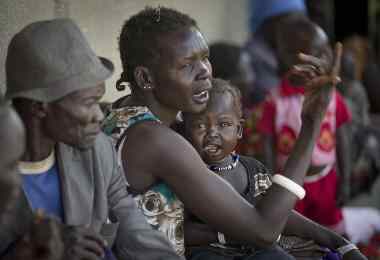MSF scales back cholera efforts after treating 3,300 cases in S. Sudan
September 7, 2014 (JUBA) – A significant decline in the number of new cholera cases in South Sudan in recent weeks has prompted Médecins Sans Frontières (MSF) to scale down its cholera operations and will redirect resources towards other unmet health needs in the country.

This is reportedly more than half of the 5,561 total cholera cases officially recorded countrywide in the current outbreak. MSF teams responded to the outbreak by rapidly constructing treatment centres in Juba and setting up oral rehydration points across the city and in other affected locations.
At the same time, MSF worked closely with the South Sudanese authorities and other partners to improve people’s access to safe drinking water and to train health staff in dealing with the outbreak.
At first the disease spread quickly, exacerbated by unsanitary and overcrowded conditions in the camps where people were sheltering, and by the lack of healthcare.
“Deteriorating living conditions for hundreds of thousands of people, combined with the lack of functioning health facilities, created a perfect storm for the spread of the disease earlier this year,” said Brian Moller, MSF’s head of mission in South Sudan.
The recent decline in the number of new cases of cholera suggests that the outbreak is now under control.
“While MSF will remain vigilant, it looks like the efforts of the Ministry of Health and other organisations, including MSF, have helped bring the epidemic under control,” noted Moller.
As part of its cholera response, MSF teams carried out the first mass cholera vaccination campaigns ever done in South Sudan, immunising a total of 200,000 displaced people and host families in Malakal, Minkamen and Juba against the disease.
MSF teams also vaccinated a further 150,000 South Sudanese refugees in Gambella camp, Ethiopia, to prevent the outbreak spreading beyond South Sudan’s borders.
“Cholera vaccinations provide vulnerable communities with a better chance of avoiding an outbreak. While the vaccination itself only provides an estimated 65 percent chance of protection, it is one of a number of measures that can help reduce the spread of the disease, alongside improving people’s living conditions, and ensuring they have proper sanitation and clean drinking water,” Moller observed.
Over its 40 years of existence, MSF has reportedly developed significant expertise in the management of cholera.
While MSF is reducing its cholera response in South Sudan, ongoing health promotion and community awareness activities will be essential to prevent a recurrence of the disease, the agency said.
(ST)
